-
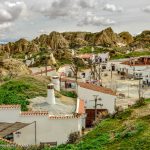 Guadix, a Spanish Hobbiton
An hour away from Granada, hidden between prehistoric karst mountains,( read more...)
Guadix, a Spanish Hobbiton
An hour away from Granada, hidden between prehistoric karst mountains,( read more...) -
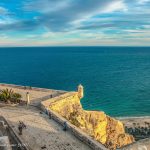 Alicante, Spain with a Nordic vibe
Alicante represents the door to the Southern vibes of Spain.( read more...)
Alicante, Spain with a Nordic vibe
Alicante represents the door to the Southern vibes of Spain.( read more...) -
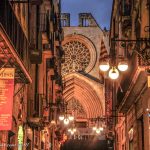 Tarragona, pure magic!
Arriving in Tarragona on the very first night of its( read more...)
Tarragona, pure magic!
Arriving in Tarragona on the very first night of its( read more...) -
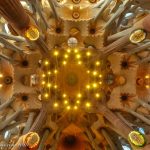 In the sacred woods of La Sagrada Familia
It is truly impossible to describe the feeling I had( read more...)
In the sacred woods of La Sagrada Familia
It is truly impossible to describe the feeling I had( read more...) -
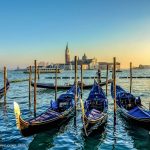 Venice, just a perfect day
Take a sunny day after the Christmas holidays when tourists( read more...)
Venice, just a perfect day
Take a sunny day after the Christmas holidays when tourists( read more...) -
 Northern Lights:The dance of the Green Spirits
For many years one of the most funny stories about( read more...)
Northern Lights:The dance of the Green Spirits
For many years one of the most funny stories about( read more...)
Bratislava is one of those nice Autumn surprises you don’t expect to get after a 18 hour night bus trip from Amsterdam.
It welcomed me in a shiny, sunny and warm day of middle October, and donated me am incredible warm week of joy, discovery, surprises and catching up with an old friend I didn’t see since 2006.
At the feets of a stunning white painted castle, Bratislava invites you to get lost in its old Medieval streets which, in a quiet low season day, are almost empty and spoiled of tourists.
The Danube river, the most majestic of all European rivers, embrace the town, protects it and works as a referral point in case you get lost, which is almost impossible here.
Everywhere in town there are bronze statues of local people who were famous in the past and they make you feel welcome and never alone.
The warm colours of Autumn gave the town glimpse of its old beauty and I found a pleasure to walk around by day and night and observe how it change so much in the darkness. From the first moment you step in, Batislava is one of those town you feel that it is going to be awesome at night. And so it is, indeed. At night the town gets an enchanting charme and a magic feeling of a lost and far away past that there feels so alive, still.
Because of its turbulent past that ended only few decades ago, like a lot of Eastern European cities, Bratislava is still affordable. Food and drinks are very cheap compared to the rest of Europe. Only according to our Western European standards though.
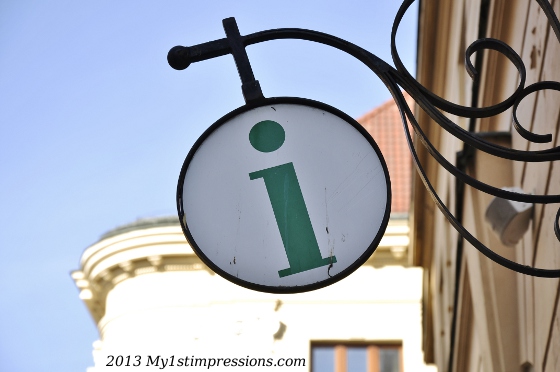 In Bratislava and even worse in the rest of the country, the salaries are really low, so the prices of food and drinks are adeguate to the standards of the place.
In Bratislava and even worse in the rest of the country, the salaries are really low, so the prices of food and drinks are adeguate to the standards of the place.
Unfortunately, it is not like this for the rest of the gods. Shoes, clothes, phones, technology and any other vicious of our world are expensive, even for people who come from Amsterdam or London. I entered a shop of shoes just to see the prices and found them too expensive for what the people earn there. This is what nobody talks about when you hear them talking about Slovakia. How can the people afford a pair of shoes that cost 100 euros if they earn 500 euros per month?
This is only one of the many contradiction of this place, of this town and of this country that is still in a transition between its heavy past and the uncertain future.
Most of the people of Bratislava, those we call the “normal “ people, live outside of the town, in big, old and ugly ex communist blocks that look all the same. The touristic Bratislava is beautiful but fake at the same town. Nobody really lives in the center, unless rich and probably foreigner.
Talking with my old friend, met after 6 years, I discovered a new world that is not the one we read on the tourist leaflet about this country.
The Communist mentality, habits and way of living is still a reality in Slovakia, and, according to my friend, it will take generations before it can be finally forgotten.
In Slovakia, the average salary is around 500-600 Euros and there are still a lot of people who work 12 hours per day with half hour break when they are not even allowed to leave the building where they work. There is a lot of Communist influence in all this. The boss of the big and small companies don’t understand it, “for them it is only about money”, my friend told me, they dont understand that sometimes if you treat the people a bit better and get their living conditions better, they will probably work more and better for you. This work mentality seems not t have arrived her yet, or at least not everywhere. The result is so clear in the society over there.
This was my first trip after Africa. Maybe it was also because of it that, after few days in Bratislava, I really started missing the smile and warm heart of Africa n people and in general of warm people. It is not surprise if the people here they all look angry, upset or cold. It has to do with their way of living. The young people cannot travel, as their salary doesn’t allow them to do it, unless they decide to move abroad, the old work mentality influences the young generation and the old ones and make the atmosphere heavy.
“The old generation, like my mum, still believe that it was better at the time of the Communism, as when they were finishing the school the state gave them a job and a house”, my friend say, and this is the big factor influencing the future of this country, in my opinion. I hope the new generation will get the strenght to get over this and start a new world.
I will be back to Slovakia for sure. Outside the capital the nature is wonderful and untouched. The Davin castle ruins, built on a rock, overlooking the Danube and Austria, on the other side of the river, is the silent witness of a piece of history that crossed that piece of land and water.
In that point, just half hour away from the city, the river Danube divides Slovakia from Austria. Until 20 years ago thousands of Slovakian tried to cross the river to escape their country, killed by the army on their way to freedom. Now the place is beautiful and quiet, you would never think of its dark past unless you walk next to the river and see the heart shaped monument made of barbed wire, the same that were used to surround the water in that point.
A country of incredible beauty, dark history and people to be discovered…
I will be back!
Click HERE to see the full photoset of Bratislava!
Bratislava è stata una di quelle dolci sorprese autunnali che non ci si aspetta, soprattutto dopo un viaggio di 18 ore in autobus, di notte, da Amsterdam.
Mi ha dato il benvenuto in un caldo, splendente e soleggiato giorno di metà Ottobre, donandomi incredibilmente una settimana intera di caldo, gioia, scoperta e facendomi reincontrare con una mia vecchia amica che non vedevo da 6 anni.
Ai piedi di un bellissimo castello bianco, Bratislava ti invita a perderti tra le sue strette viuzze medievali che, in bassa stagione, sono quasi del tutto vuote, prive di turisti.
Il fiume Danubio, il più maestoso di tutti i fiumi europei, abbraccia la città, la protegge e funziona da punto di riferimento qualora ci si perda, cosa quasi impossibile da queste parti.
Ovunque nel centro storico si trovano statue di bronzo a grandezza naturale di gente del posto divenuta famosa per qualche semplice motivo, come l’augurare il buongiorno a tutti, e sono proprio loro che ti fanno sentire il benvenuto.
I caldi colori dell’autunno danno alla città un tocco di bellezza che rende piacevole passeggiare e osservandola cambiare dal giorno alla notte. Di notte, infatti, Bratislava si colora di un fascino particolare ed incantatore che la rende viva e bella.
A causa del suo passato buio e turbolento simile a quello di altre città dell’Europa orientale, terminato solo due decine di secoli fa,
Bratislava è ancora una città non costosa. Magiare e bere in città costa pochissimo rispetto al resto dell’Europa, se visto con i nostri occhi da occidentali, però. A Bratislava, e ancora peggio nel resto del paese, i salari, infatti, sono bassissimi, quindi i prezzi sono adeguati a quel mondo e alla sua economia.
Purtroppo però, non è così per il resto. Scarpe, vestiti, telefoni, tecnologia, e ogni altro vizio del mondo sono ancora costosi, persino per persone che vengono da Amsterdam o Londra. A parte il cibo, il resto ha prezzi altissimi. Sono entrata in un negozio di scarpe solo per guardare i prezzi e ho trovato tutto esageratamente costoso rispetto ai loro stipendi. Questo è purtroppo un aspetto di cui nessuno parla quando sento nominare Bratislava. Come può la gente permettersi un paio di scarpe di 100 euro se in totale, al mese, ne guadagna 500?
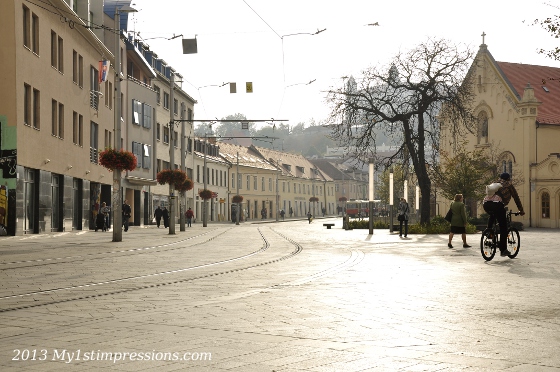 E questa è solo una delle tante contraddizioni di questo paese, di questa città e di questo posto che è ancora in transizione tra un passato pesantissimo e un futuro purtroppo incerto.
E questa è solo una delle tante contraddizioni di questo paese, di questa città e di questo posto che è ancora in transizione tra un passato pesantissimo e un futuro purtroppo incerto.
La maggior parte della gente di Bratislava, quella che noi chiamiamo la gente “normale”, vive fuori dal centro o fuori dalla città, in grandi, vecchi e brutti palazzi ex comunisti simili a blocchi di cemento. Il turismo a Bratislava è bello ma anche finto, in un certo senso. Nessuno davvero vive in centro, a meno di ricchi e stranieri.
Parlando con Jana, una mia vecchia amica conosciuta a Londra sei anni fa, ho scoperto un nuovo mondo, molto diverso da quello dei volantini patinati delle agenzie di viaggio.
La mentalità e le abitudini comuniste sono ancora una realtà in Slovacchia e, secondo la mia amica, ci vorranno generazioni prima che possa essere dimenticata.
In Slovacchia il salario medio è di 500-600 Euro al mese e c’è chi ancora lavora 12 ore al giorno con una pausa di mezzora in cui non è permesso lasciare l’edificio. C’è un sacco di retorica e anche eredità comunista in tutto ciò. I capi delle piccole e grandi aziende non lo capiscono, “per oro è solo una questione di soldi”, Jana dice, loro non concepiscono il fatto che se si trattano i propri impiegati meglio loro lavoreranno molto meglio, perché più contenti.
Questa nuova mentalità sembra none ssere nemmeno arrivata, o almeno non ovunque e il risultato è palese a tutti.
Questo è stato il mio primo viaggio dopo l’Africa. Forse è stato anche a causa di questo, ma dopo pochi giorni che ero là ho iniziato all’improvviso a sentire la mancanza del sorriso e del cuore caldo della gente africana e non. Non mi sorprende vedere le persone per le strade di Bratislava arrabbiati o fredde. Ha a che fare, ahimè, con il loro modo di vivere. I giovani non possono viaggiare perché non possono permetterselo, a meno che non decidano di andare all’estero, la vecchia mentalità ancora influenza la loro realtà e rende l’atmosfera pesante.
“La vecchia genrazione, quella di mia madre, pensa che è un peccato che il Comunismo sia finito, perché almeno a quei tempi, dopo la scuola, ci pensava lo stato ad assicurare un lavoro e una casa a tutti”, dice la mia amica e questo è proprio uno di quei fattori che influenzano, ad oggi, il futuro di questo paese, secondo me. Io spero che le nuove generazioni abbiano la forza di farla finita con il passato e iniziare con un mondo nuovo.
Tornerò di sicuro in Slovacchia. Fuori dalla capitale la natura è incontaminata e stupenda. Le rovine del castello di Davin, fuori dalla capitale, che sovrastano il Danubio là dove Austria e Slovacchia si specchiano nelle sue acque blu, ricorda la storia triste di quel posto.
In quel punto, infatti, dove il Danubio divide questi due paesi, fino a vent’anni fa migliaia di Slovacchi hanno perso la vita nel tentativo di lasciare il paese a nuoto. L’esercito sparava a vista, se solo riuscivano a superare il filo spinato. Ora quel posto è bello e tranquillo, se non si è al corrente di questa sua storia m la si immaginerebbe, fino a quando non si vede il monumento a loro dedicato, che possa essere stato un a zona di così tanta ombra.
Un paese di incredibile bellezza, ombra e gente da essere scoperta.
Tornerò!
Clicca QUI per vedere l’intero album di Bratislava!
1 comment
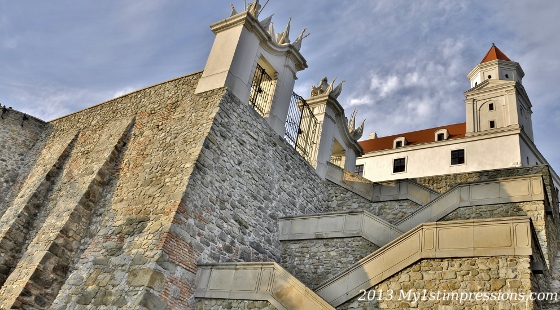
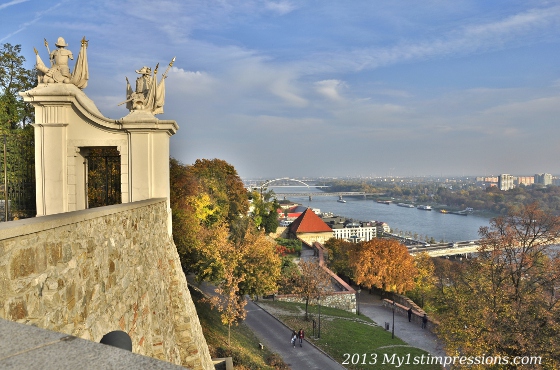
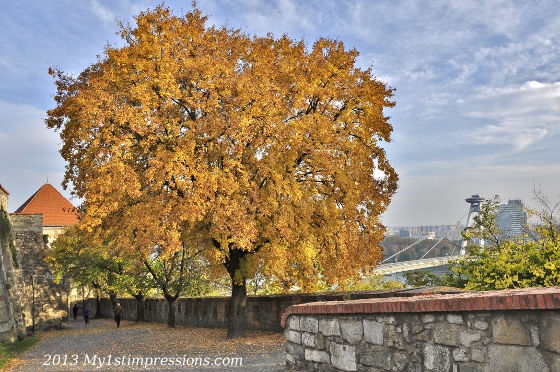
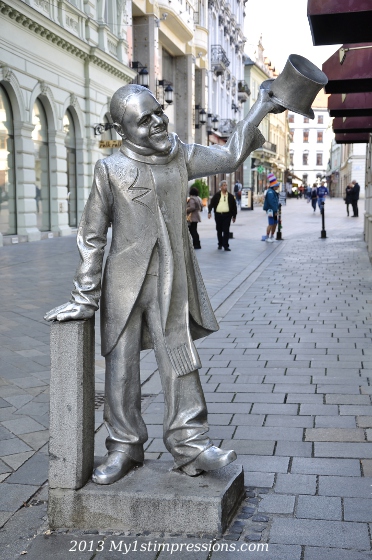
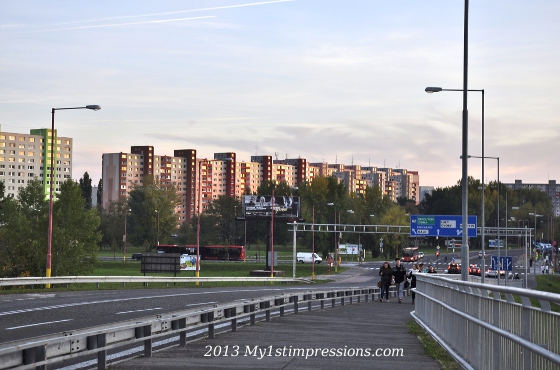
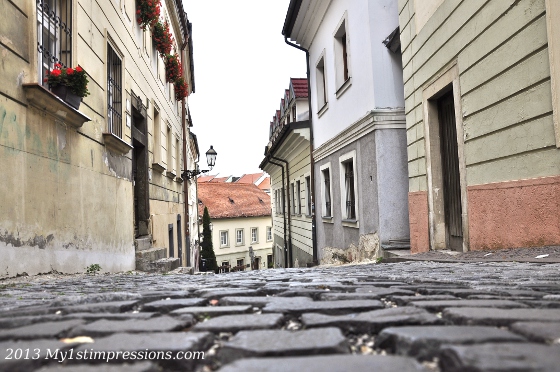
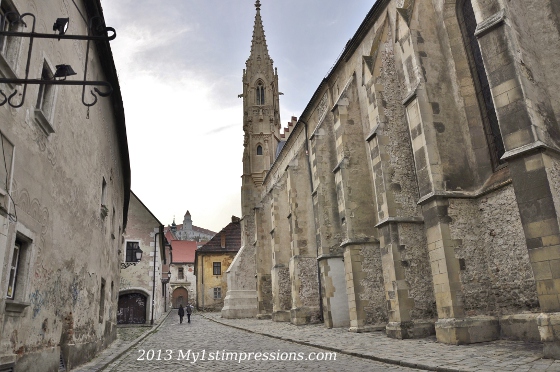
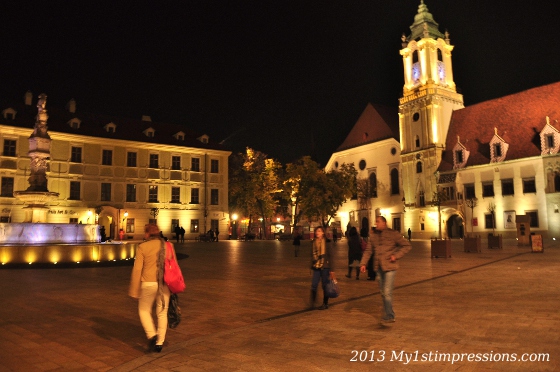
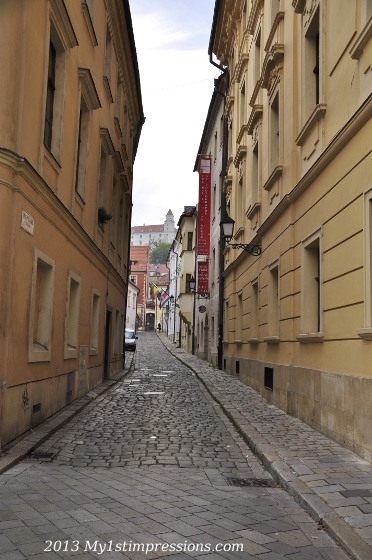
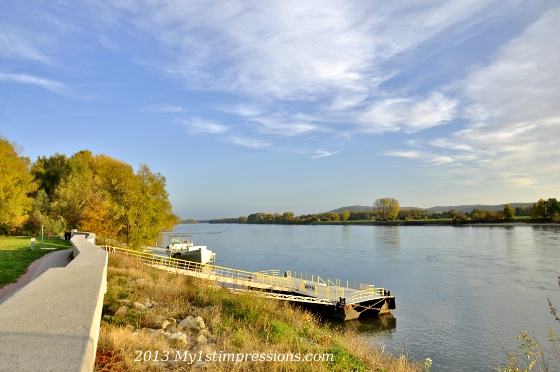
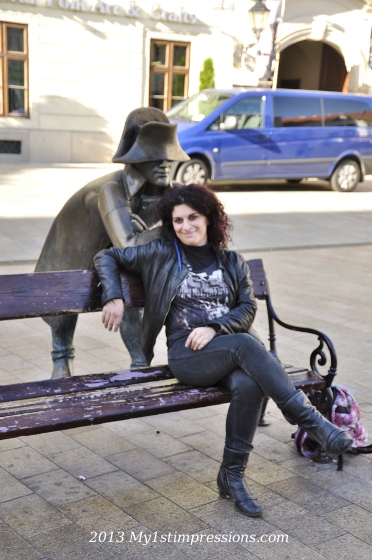
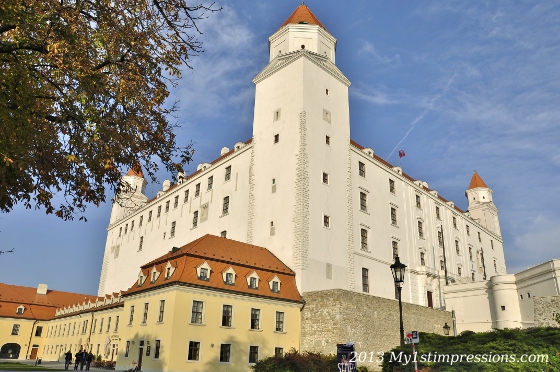
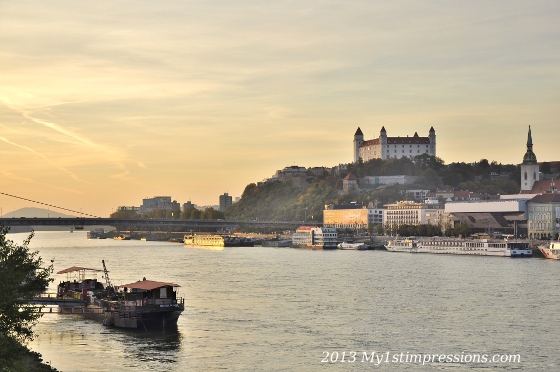
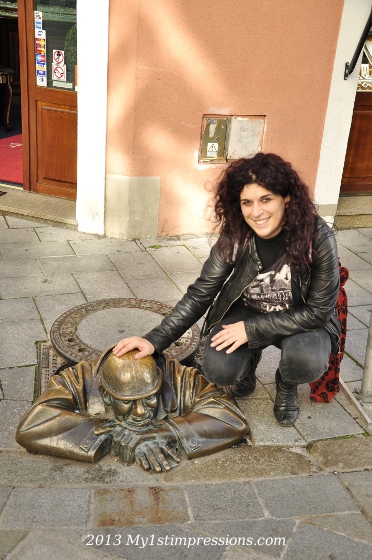
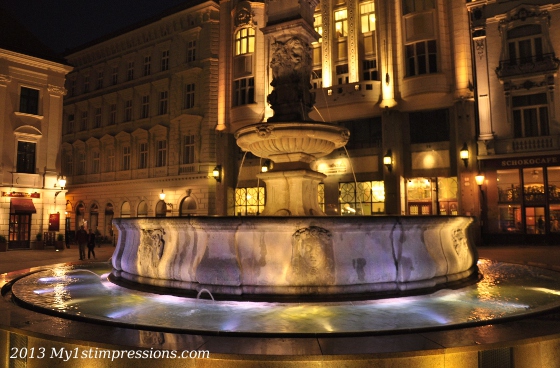
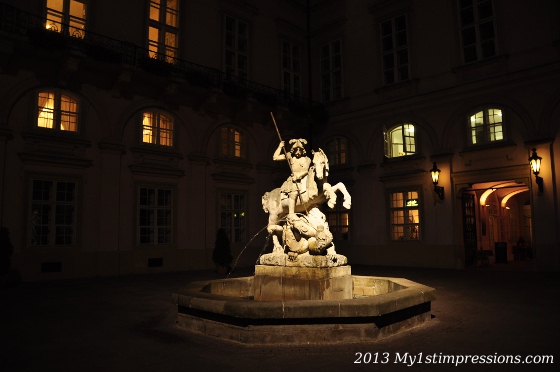
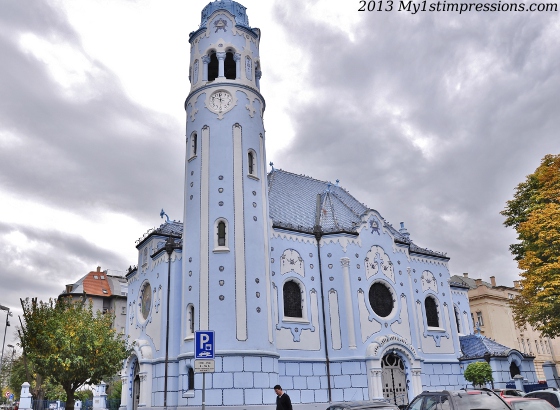
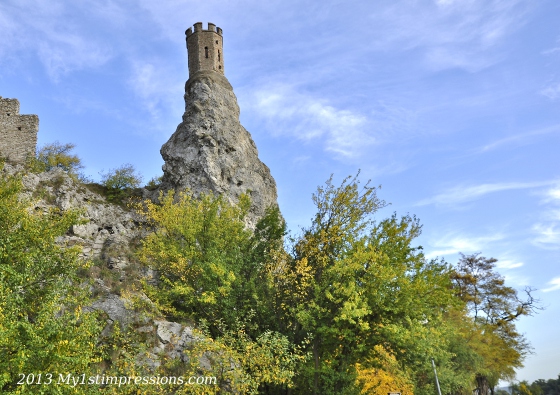
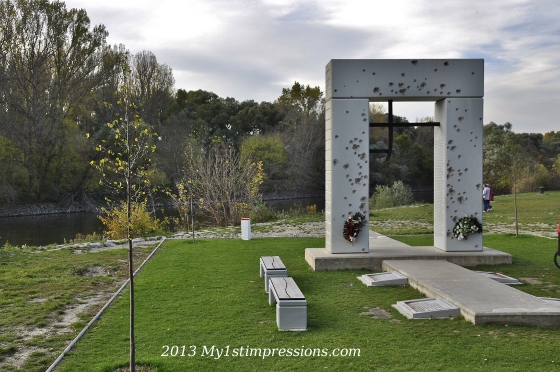
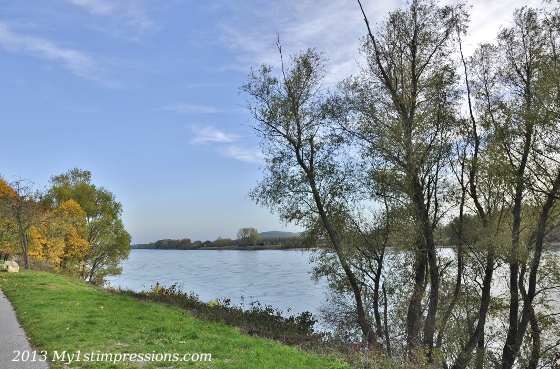


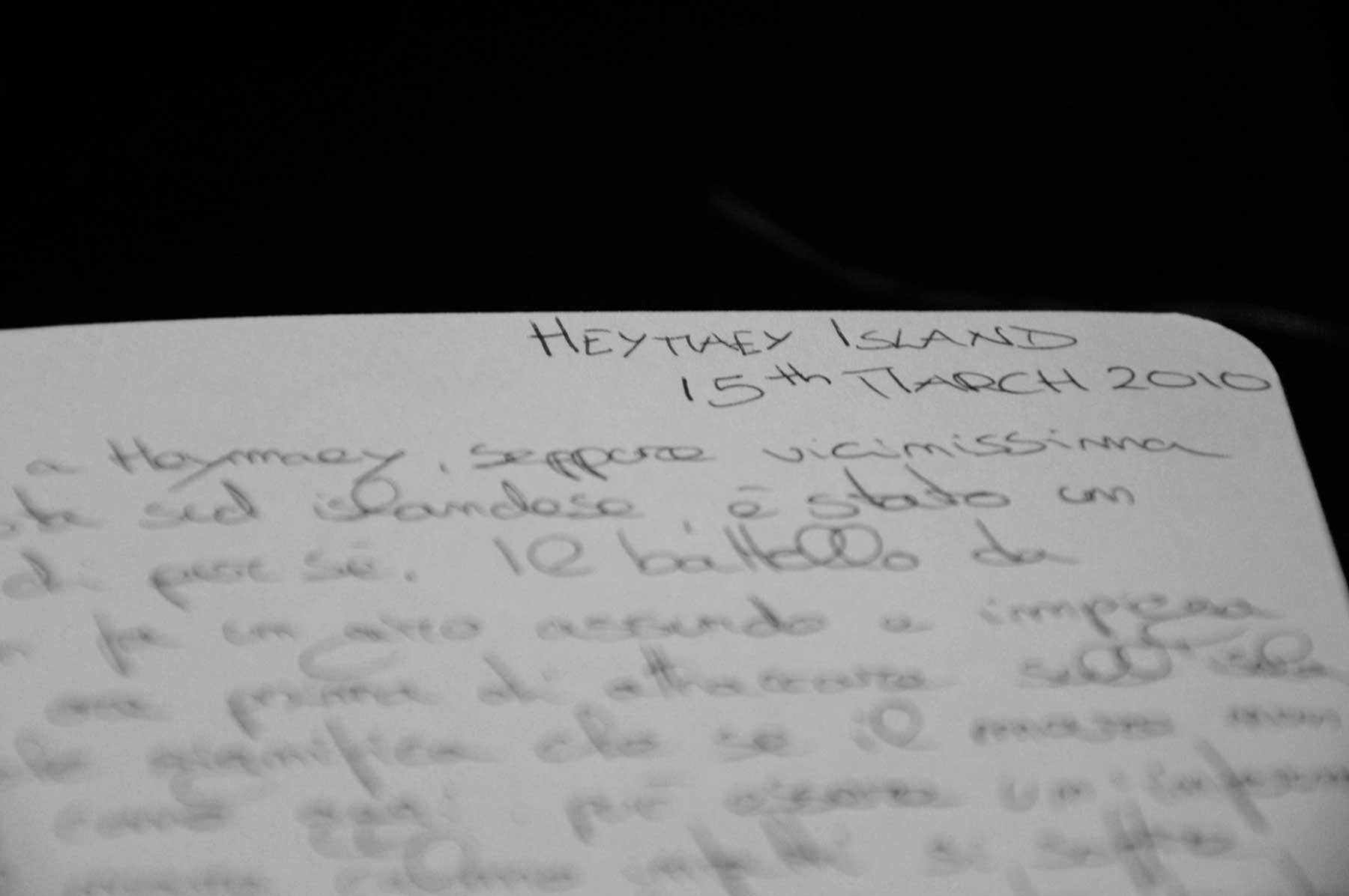
Very beautiful pictures.
Greetings from Spain.
Alberto.